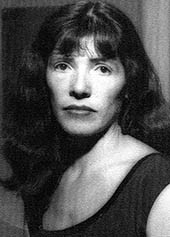Categories
Composer(s)
…More information
Associates
Other publishers, editions and labels that belong to the AMA Group:
Alexander, Leni

Helene Alexander, known as Leni Alexander (* June 8, 1924 in Breslau; August 7, 2005 in Santiago de Chile), was a German-Chilean composer of new music and radio play author.
Born in Breslau, Leni Alexander grew up in Hamburg as the daughter of opera singer Ilse Pollack (18941964) and publishing house manager Max Alexander (18981962). In 1932, after divorcing Max Alexander, her mother married lawyer Siegfried Urias, who had long been active in the German-Israeli community.
After the destruction of the Hamburg synagogue during Kristallnacht (Pogrom Night) on November 910, 1938, her Jewish parents decided to flee Germany and emigrated to Chile via Amsterdam in 1939.
After a study visit in 1954, she was able to return to Paris with her youngest son, Bastián, in 1969 thanks to a scholarship. This stay could be considered a second exile. As a supporter of Salvador Allende's Popular Unity, she feared for her life again after the 1973 military coup in Chile, so she remained in Paris. After Pinochet's seizure of power, she became politically active and worked for Amnesty International and Chile Solidarity Committees.
After the return to democracy in Chile, she led a life between Europe and Chile, where her three children and numerous grandchildren live. Leni Alexander is the mother of Andreas Bodenhöfer, Beatrice Bodenhöfer, and Bastián Bodenhöfer.
She died on August 7, 2005, in Santiago de Chile, where she was buried in the Jewish cemetery.
Her musical talent was encouraged early on by her mother, an opera singer, and she learned to play the piano and cello. In Santiago de Chile, Leni Alexander initially trained as a Montessori teacher, receiving piano, cello, harmony, and counterpoint lessons. From 1949 to 1953, she studied composition with Fré Focke, a Dutch composer and student of Anton Webern. In 1952, she met Pierre Boulez in Santiago, who suggested she continue her studies in Paris. A French government scholarship enabled her to go to Paris in 1954, where she studied composition at the Conservatoire with Olivier Messiaen and René Leibowitz (19131972). In Paris, she became friends with the composer and conductor Bruno Maderna (19201973), with whom she continued to take composition lessons for a time in Venice, and with Luigi Nono (19241990).
In 1960, her cantata "From Death to Morning" was selected as Latin America's representative contribution to the Festival of the International Society for New Music in Cologne. A Guggenheim Fellowship enabled her to return to Paris in 1969 with her youngest son, Bastián.
Her musical output includes works for piano, other solo instruments, and ensemble, as well as choral and orchestral works, ballet music, and radio plays.
Her radio plays and compositions reflect her Jewish identity and her experiences under two dictatorships. During her stays in Cologne, she produced numerous radio plays for WDR, mostly in collaboration with director Hein Brühl. Her trusted circle of friends in Cologne included composer Wolfgang Hamm, actor Gerhard Haag, artists Luise Unger and Franz van der Grinten, and composer Hans W. Koch. She published articles in the journal MusikTexte.
Most of her works have premiered in Latin America, France, Germany, and the USA.









